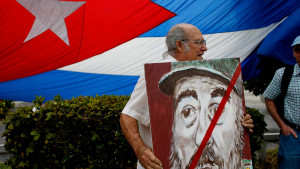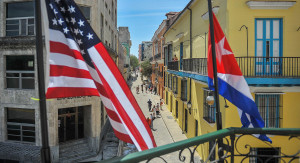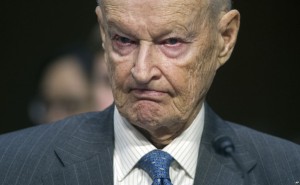The anti-Castro/Cuba lobby in the United States has been outsized for as long as I can remember.
Perhaps we are witnessing this week the latest manifestation of that muscle-flexing as President Obama tours the tiny island nation and gets skewered by those on the right for doing what many others of us think is the right thing.
Which is to normalize relations with the communist regime.
It’s a curious thing to watch the head of state of the world’s most powerful nation standing shoulder-to-shoulder with the leader of a dirt-poor Third World state. Then to have that tinhorn lecture the leader of the Free World about whether the United States should keep possession of its naval base at Guantanamo Bay gives the Cubans a dubious and overstated standing — and then to have critics pounce on Obama for taking it!
To what do we owe this strange juxtaposition?
I believe it’s the power of that Cuban-American community that resides mostly in Florida.
The community had its birth in the late 1950s when Cubans fled their nation that had been taken over by Fidel Castro and his gang of communists. They took up residence in Florida and began immediately pressuring the U.S. government to do more to destroy Castro.
President Eisenhower heard them. He formulated plans to invade Cuba and then handed the keys to the Oval Office over to President Kennedy in January 1961, who then launched the Bay of Pigs invasion.
It didn’t turn out well for our side. The Cubans squashed the small force, took prisoners and then crowed about how the big, bad U.S. government was intent on destroying them.
Then we had that missile crisis in 1962. JFK took care of it by blockading the island, forcing the Soviet Union to “blink” and remove the offensive missiles.
By 1991, the Evil Empire had vaporized. Cuba was left without its major benefactor.
Still, five decades after the revolution, Cuba has remained a communist dictatorship. Fidel Castro handed the power over to his brother, Raul, who welcomed President Barack Obama to his nation.
Is Cuba a nation to be feared? Do we tremble at the thought of normalizing relations with this tiny nation? No. Why should we? We’re the big kids on the block. Heck, we’re the biggest kids on the planet!
Our politicians, though, have been told to fear Cubans by that overblown Cuban-American community.
So here we are. The president of the United States is making history simply by visiting an island nation that sits within spittin’ distance of our southeastern-most state.
Sure, the Cubans must do more to improve human rights on their island. The president should tell them so.
I don’t know why we should sweat so much over whether Raul Castro listens to us. He and that backwater government he runs can’t do us any harm.
My own sense is that normalization of relations with Cuba by itself is going to do more to bring reform to a nation that needs it in the worst way. Soon enough, the Cubans will see what the rest of the world really looks like.
They also are likely to see how their giant neighbor just over the horizon relishes the fruits of liberty.
Then they might start demanding it from their leaders.



